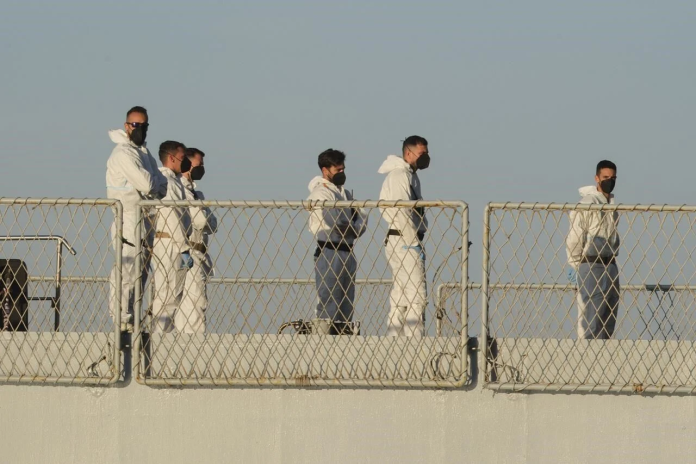The Italian-operated migration centre in Gjiader, Albania, is poised to receive its first group of migrants this week under a newly amended government decree, according to Euractiv.
The facility, now designated as a “repatriation detention centre,” will exclusively host individuals already detained in Italy who face deportation orders, marking a strategic shift to circumvent legal challenges that have stalled previous efforts.
Approved by Italy’s government on 28 March, the decree redefines the Gjiader centre’s role, limiting its function to detaining migrants subject to validated removal orders. Approximately 40 individuals–selected from detention sites across Italy by the Interior Ministry’s immigration office–are expected to be transferred imminently.
Originally, two Albanian facilities, funded by Rome, were intended to process and deport adult male migrants from “safe countries” rescued at sea. However, court injunctions halted the plans, preventing their activation.
Gjiader, initially equipped to hold 48 people, will expand its capacity to 144 within months. Though situated outside Italian territory, the centre will operate under Italy’s legal framework, mirroring its domestic repatriation detention system, where migrants can be held for up to 18 months pending deportation.
EU Commission monitors implementation
The European Commission confirmed it is tracking developments linked to the revised decree. A spokesperson stated that Italian national law would govern the Albanian centres, as it does for asylum procedures.
In principle, this is in line with EU law. We will continue to monitor the implementation of the protocol in its revised version and remain in contact with the Italian authorities.
The Italian Association for Legal Studies on Immigration (ASGI) has criticised the transfers as a “paradigm shift,” warning they create “unprecedented scenarios in Europe” by relocating detained individuals across borders without established legal precedents.
Meanwhile, the larger Shengjin facility, designed to house over 800 migrants, remains inactive. Its fate hinges on an upcoming European Court of Justice ruling, expected by June, on whether fast-track deportations for sea-rescued migrants comply with EU law.
